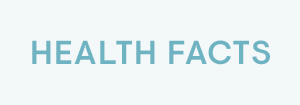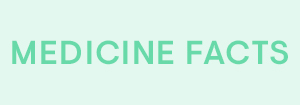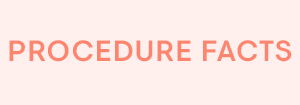Overview
High blood pressure (or Hypertension) is known as the ‘silent killer. It rarely has warning signs or symptoms, but untreated, it can lead to heart attacks and strokes.
Key Facts
- The risk of developing high blood pressure increases with age
- Most people do not have any symptoms
- Where symptoms do occur, they include irregular heart rhythms, nosebleeds, early morning headaches, vision changes and buzzing in the ears.
- Regularly measuring blood pressure is the only way to detect it
- Medicine and lifestyle changes like avoiding excessive alcohol intake, reduction of salt consumption and exercise can be used to reduce blood pressure
- The older you are, the higher your risk of developing High Blood Pressure
Symptoms & Diagnosis
Symptoms
High blood pressure has limited visible symptoms,; unfortunately, for most people, the first sign is a more significant health issue. If symptoms do occur, these are the most common:
- Irregular heart rhythms
- Nosebleed
- Early morning headaches
- Vision changes
- Buzzing in the ears
Those who have severe high blood pressure can experience the following:
- Fatigue
- Nausea
- Vomiting
- Chest pain
- Muscle tremors
- Confusion
- Anxiety
The only way to detect hypertension is to have a health professional measure blood pressure. Having blood pressure measured is quick and painless. Individuals can also measure their blood pressure using automated devices. However, an evaluation by a health professional is vital for the assessment of risk and associated conditions.
Diagnosis
The only way to confirm a diagnosis of high blood pressure is to have your blood pressure measured. This can be done quickly and painlessly by either a health professional or you on your own, using an automated device – though your doctor should confirm any results conducted by you.
Measuring blood pressure identifies two different elements of blood flow around your heart, and as a result, your blood pressure reading is composed of two numbers. The first number (called systolic blood pressure) measures the pressure in blood vessels when the heart contracts or beats. The second number(the diastolic blood pressure) is the pressure in the vessels when the heart rests between beats. Each measure is recorded in millimetres of mercury (mm Hg) and is usually written in the following format, 120/80mmHg.
You are considered to have high blood pressure if your systolic blood pressure is 140 mmHg or higher and/or your diastolic blood pressure is 90 mmHg or more, so a reading of 140/90 mmHg. However, a single high reading is not enough to confirm a diagnosis – for it to be confirmed, you would have to have similarly high readings on two different days while resting.
Causes & Prevention
Causes
Although there is no single cause of high blood pressure, many factors can increase your risk. These include:
- Age – as you get older, the risk of developing high blood pressure increases
- A family history of high blood pressure
- Being of African or Caribbean origin
- A high amount of salt in your food
- Lack of exercise
- Being overweight
- Regularly drinking large amounts of alcohol
- Smoking
- Long-term sleep deprivation
In about 1 in 20 cases, high blood pressure happens due to an underlying health condition. These can include:
- Kidney disease
- Diabetes
- Long-term kidney infections
- Obstructive sleep apnea – where the walls of the throat relax and narrow during sleep, interrupting normal breathing
- Narrowing of the arteries supplying the kidneys
- Lupus
- Hormone problems – such as an overactive or underactive thyroid, Cushing’s syndrome, or increased levels of the hormone aldosterone (hyperaldosteronism)
Some medications can also increase your blood pressure, including:
- The contraceptive pill
- Steroids
- Non-steroidal anti-inflammatory drugs (NSAIDs) – such as ibuprofen and naproxen
- Some herbal remedies – particularly those containing liquorice
- Some recreational drugs – such as cocaine and amphetamines
- Some selective serotonin-noradrenaline reuptake inhibitors (SSNRI)
- Antidepressants – such as venlafaxine
Your blood pressure can return to an average level if you can stop taking the medicine or drug.
Prevention
You can reduce your chances of high blood pressure by taking action to reduce your risks, such as:
- Eating more fruit and vegetables
- Being physically active regularly
- Reducing your alcohol consumption
- Reducing your salt intake (to less than 5g daily)
- Avoiding the use of tobacco
- Limiting your intake of foods high in saturated fats
Treatments
Depending on your health circumstances, your doctor will recommend treatment to bring your blood pressure down to a safe level. This is usually done through lifestyle changes and/or medication.
Some people with high blood pressure may also need to take one or more medicines to stop their blood pressure from getting too high. Here are some of the common blood pressure medications:
- ACE inhibitors – such as enalapril, lisinopril, perindopril and ramipril
- Angiotensin-2 receptor blockers (ARBs) – such as candesartan, irbesartan, losartan, valsartan and olmesartan
- Calcium channel blockers – such as amlodipine, felodipine and nifedipine or diltiazem and verapamil
- Diuretics – such as indapamide and bendroflumethiazide beta-blockers – such as atenolol and bisoprolol
- Alpha-blockers – such as doxazosin
- Other diuretics – such as amiloride and spironolactone
What medication you are prescribed will depend on your particular situation and factors such as your age and ethnicity, as well as your blood pressure.
Conclusion
Untreated high blood pressure is known to increase the mortality risk and, therefore, is known as the “silent killer” because it does not usually have symptoms.
If you have any risk factors, such as a heart condition or diabetes, it is recommended that you regularly monitor your blood pressure and take preventive measures.
MOST COMMON







